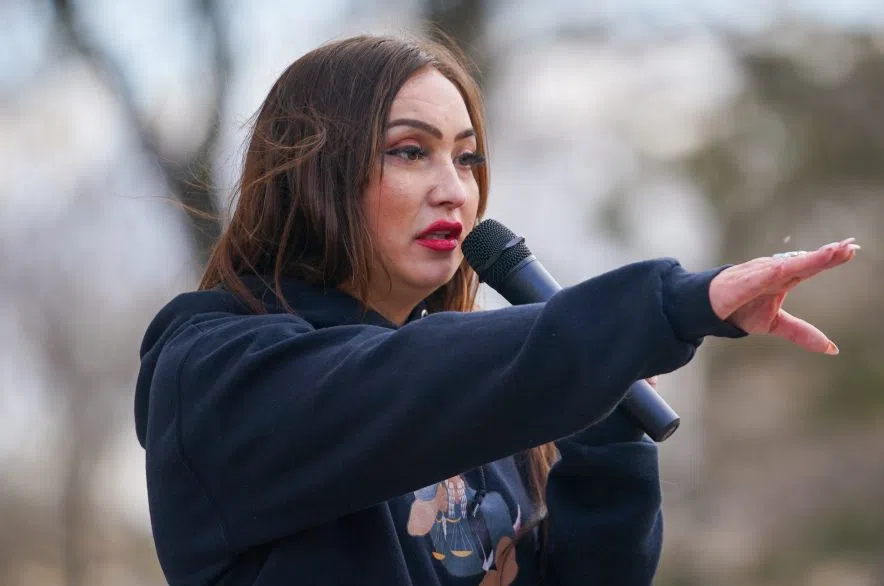The province provided a progress report on its efforts to address the issue of missing and murdered Indigenous women on Thursday.
This week marks five years since a national inquiry drew 231 calls to justice to address violence against Indigenous women and girls.
“The impacts of gender-based violence have lasting effects on the survivors, their families, and our communities,” Laura Ross, the minister responsible for the status of women, said in a press release.
Many of the initiatives touted by the province outlined generalized funding to combat gender-based violence, second-stage housing, human trafficking and mental health support.
The report highlighted the $255 million budgeted for First Nation and Métis communities and organizations, a $6.1 million increase from last year.
The report also highlights a $21.7 million investment in the RCMP First Nations Policing Program and funding for police positions dedicated to investigating long-term missing people in Saskatchewan.
An investment into Missing and Murdered Indigenous Women and Girls+ Community Response Fund has also doubled to $800,000.
FSIN Vice-Chief Aly Bear said the report has brought awareness to these issues.
“I feel like there’s a lot more that needs to be done, and I think that we can continue to work together to make sure that happens,” she said.
“First and foremost, we need the families’ voices heard at the tables,” Bear said.
Métis Nation-Saskatchewan’s Child and Family Services Minister Kathie Pruden explained that Métis people are often left out of conversations surrounding this topic.
“I would like to see us sitting at a table discussing and coming up with solutions with our families, with our elders, and working together,” she said. “First Nations and Métis are all related, we’re family one way or another.”
Bronwyn Eyre, minister of justice and attorney general, explained that work has been done between the province’s ministries to address the issue of missing and murdered Indigenous women.
“This really is about standing together, it’s about working together, and it’s about looking at what we’ve done and what we can do,” Eyre said. “We’re open to any and all conversations to stop this from ever happening to another family.”
Eyre referred to the national inquiry’s recommendations on justice, education, and economic reconciliation.
“We have addressed many of those and continue to,” she said.
A tense moment emerged at the event when Pruden suggested she and Bear were initially forgotten on the agenda for the province’s unveiling of the report.
“Why are we forgotten all the time,” she said. “We’re expected to be here last minute and provide you with information and make it look like it’s all going well — it’s not,” she said.
Eyre stepped in to clarify that the province invited Pruden and Bear to the event, and it was an honour to have them participate.
On Monday, the Assembly of First Nations released a progress report on the national inquiry that indicates only two calls for justice impacting First Nations have been fully implemented, while many recommendations have shown minimal or no progress.











